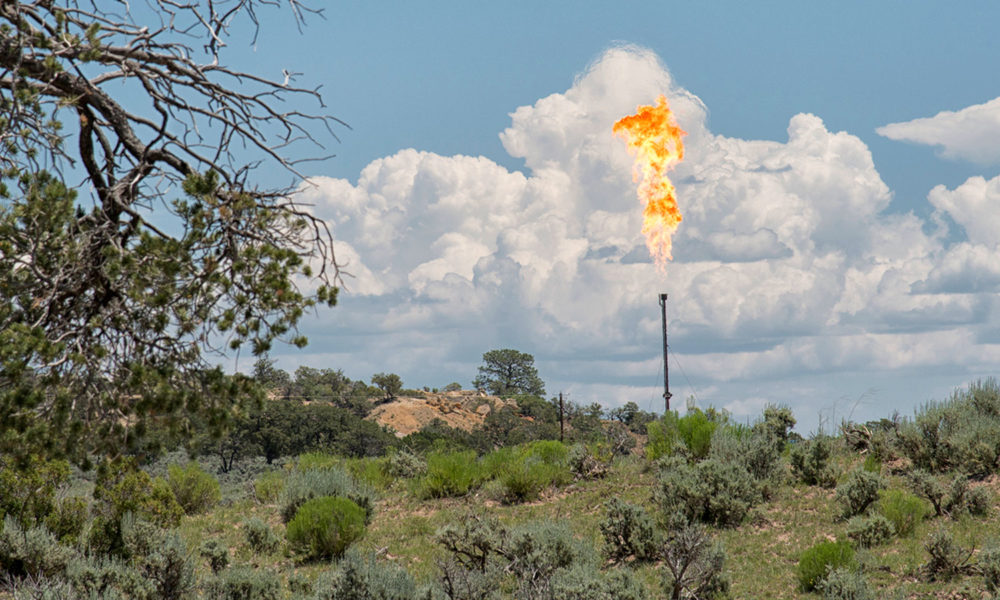In early May the Bureau of Land Management (BLM) made headlines as the Trump administration announced that it will once again renew William Pendley as BLM acting director. This choice is disappointing to say the least, not to mention a potential violation of the Federal Vacancies Reform Act.
Added to this, BLM leadership has now chosen to use the current public health crisis to muffle the voices of people living near the public lands the agency is supposed to protect, this time in New Mexico. BLM recently announced a plan to proceed with oil and gas extraction in northern New Mexico, including in an area near Chaco Canyon National Historical Park that they had previously reversed course on.
The agency has given the public until May 28 to voice their opinions on the project. This at a time when the Native American communities surrounding the proposed development area are dealing with the physical health and economic damage of coronavirus at rates far greater than the rest of the US, while at the same time waiting for vital but delayed federal aid.
The timing of this choice also seems exceptional given that oil and gas prices recently hit rock-bottom, prompting many to ask why BLM is in such a hurry to give away our resources so cheaply?
COVID-19 has been a challenge to us all. This novel coronavirus has required all industries to reassess how they conduct business as we learn to adapt to new social distancing measures; however, it is important that any adaptation measures are designed equitably.
BLM recently announced that public hearings for many upcoming projects will now be done virtually, but this effort to reduce social gatherings significantly excludes key stakeholders who do not have access to broadband internet. And when this issue was pointed out to BLM all they could offer was that people could instead email their protests, which still requires internet access.
Why doesn’t BLM choose to delay their public hearings? Why is it so urgent that we extract these resources now without giving those without internet access a chance to discuss the ramifications of the matter at a later date?
Democracy denied
New Mexico is presently home to 23 Native American tribes, many of whom have been hit hard by coronavirus. They are particularly vulnerable as many of these communities have higher rates of underlying medical conditions such as asthma, diabetes, and chronic obstructive pulmonary disease. Couple this with the fact that less than half of households on tribal lands have access to broadband service and it becomes clear that choosing to only hold public hearings virtually is a very effective way to exclude those who can’t leave their homes.
And yet what choice do these communities have if they want to protect their ancestral lands from development? My colleague, Adam Markham, wrote of the intrinsic cultural value this landscape holds. The BLM’s Farmington Mancos-Gallup Management Plan for oil and gas extraction covers a vast area spanning around 4.1 million acres, including the area around Chaco Culture National Historical Park. The plan proposes up to 3200 oil and gas wells between now and 2037. BLM estimates that these wells will generate almost 280 million barrels of oil, 5 trillion cubic feet of gas, and 187 million barrels of water. BLM’s environmental impact statement predicts that 75,000 acres will be disturbed over the next two decades, 60% of which will remain disturbed by the end of the project.
Taking advantage of a public health crisis
Around 30% of New Mexico’s COVID-19 cases are people who identify as Native American, so it seems like it would be in particularly poor taste to choose this moment to push to open the tribal lands of these communities for oil and gas extraction without taking into account their full input. By exploiting the current health crisis BLM appears to be attempting to disenfranchise those from directly impacted communities who deserve a say in the decision-making process.
Mr. Pendley described his motivation for these meetings as a way to decrease their carbon footprint and “increase by orders of magnitude those able to participate in the meeting itself.” So for those of us who do have access to the internet and are not otherwise engaged, how about we take advantage of the BLM’s kind offer to attend the meetings? They offer a number of dates to attend from May 14–18 (register here to attend one). Many are calling on Acting Director Pendley to extend the public comment period until stay-at-home orders are lifted, so that all stakeholders get an equal say in the project.
The BLM’s mission is to “sustain the health, diversity, and productivity of public lands for the use and enjoyment of present and future generations.” I question how this helps present and future generations to use a public health crisis to push an intensive fossil-fuel extraction agenda, especially at a time when US crude oil is trading at near record low prices. I plan to attend one of these meetings and let BLM know my thoughts on this matter.

